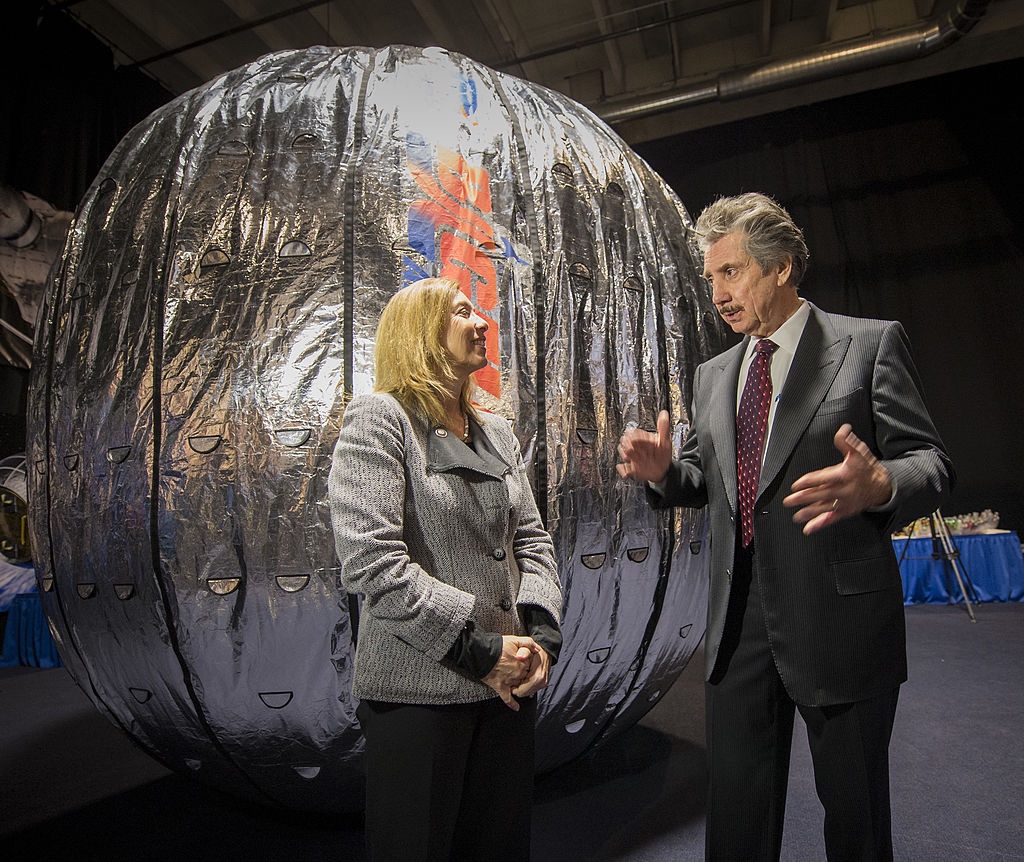Aliens Have Visited Earth, Space Entrepreneur Robert Bigelow Believes

Aliens are among us. That's the gist of comments made by billionaire space entrepreneur Robert Bigelow on CBS' "60 Minutes" on Sunday. Could intelligent alien life really exist on Earth and we wouldn't know about it?
Not likely, according to Seth Shostak, a senior astronomer at the SETI Institute, who said, "Obviously, I think that aliens are out there. The conditions for life seem to be very widespread. All the requirements for life are everywhere, that doesn't prove life is everywhere."
"Could they come here and be buzzing the skies and occasionally entertaining Bob Bigelow by visiting him? It doesn't violate physics, but is it likely?" Shostak told Live Science. (Not really, because if it were, humans would have better evidence by now for their Earthly invasion, he said.) [13 Famous People Who Believe in Aliens]
Bigelow noted during the interview May 28 that his grandparents spotted a UFO on a canyon road outside Las Vegas: "It really sped up and came right into their face and filled up the entire windshield of the car. And it took off at a right angle and shot off into the distance," he told "60 Minutes" reporter Lara Logan.
"Do you believe in aliens?" Logan asked. "I'm absolutely convinced and that's all there is to it," said Bigelow, founder and CEO of the commercial space company Bigelow Aerospace. "There has been and there is an existing presence, an E.T. presence."
When asked if he expects to see forms of intelligent life as humans explore the universe, Bigelow replied, "You don't have to go anywhere. … It's just, like, right under people's noses."
No proof of Earthly aliens
More than half of Americans (54 percent) believe intelligent life capable of communication exists among the stars, according to a 2015 survey by marketing research firm YouGov. Plenty of money and big minds have been put to the task of finding signs of E.T., with an entire institute called SETI devoted to just that.
Sign up for the Live Science daily newsletter now
Get the world’s most fascinating discoveries delivered straight to your inbox.
"He's not the only Silicon Valley type, entrepreneur in the tech industry, that thinks we're being visited," Shostak said.
Even so, the solid evidence of these visitors is nonexistent.
"Interstellar travel is very difficult; it's an energy problem," Shostak explained. Adding to that, why would aliens come visit humans now and not 2,000 years ago? (There are no records of the ancient Romans worrying about UFOs.)
If there were some reason for modern-day alien visitors, Shostak said, someone would have strong evidence by now.
"Well, if you really do think they're here, then why is it that the evidence is so poor; if the evidence was so good, we wouldn't be arguing about it, we'd be investigating it," Shostak said. "We have satellites monitoring the Earth all the time. And they don't see these guys, and yet they're apparently so visible that a random guy like Bob Bigelow can see them."
Hostile aliens
Cosmologist Stephen Hawking believes not only that aliens are out there (though he doesn't think we'll find them anytime soon), but that they could destroy humanity. Another believer in hostile aliens is film director Ridley Scott, who recently told Agence France-Presse (AFP) that extraterrestrial beings exist, and if they decide to visit planet Earth, humans should watch out. "If you are stupid enough to challenge them you will be taken out in three seconds," Scott told AFP.
Even Winston Churchill believed: "I, for one, am not so immensely impressed by the success we are making of our civilization here that I am prepared to think we are the only spot in this immense universe which contains living, thinking creatures," he wrote in an essay on the search for alien life that was recently uncovered at the Churchill Museum in Fulton, Missouri.
Astronomers are looking deeper into the universe for signs of alien life, which could range from microbes to "little green men," using sophisticated equipment to detect chemical signatures or radio signals that could be explained by biological or intelligent processes. [4 Places Where Alien Life May Lurk in the Solar System]
Right here in the solar system, NASA and private companies have spent billions on getting to know the Red Planet, with high hopes of finding signs of Martian life (though not intelligent beings), Leonard David reported in an article in Scientific American.
"Yet against all odds (and researchers' hopes for a watershed discovery), Mars remains a poker-faced world that holds its cards tight. No convincing signs of life have emerged. But astrobiologists continue to, quite literally, chip away at finding the truth," reported David, author of "Mars: Our Future on the Red Planet," in a 2016 National Geographic article.
What if alien life were not fleshy biological beings at all? Shostak thinks that most intelligent life may be machines.
Original article on Live Science.
Jeanna Bryner is managing editor of Scientific American. Previously she was editor in chief of Live Science and, prior to that, an editor at Scholastic's Science World magazine. Bryner has an English degree from Salisbury University, a master's degree in biogeochemistry and environmental sciences from the University of Maryland and a graduate science journalism degree from New York University. She has worked as a biologist in Florida, where she monitored wetlands and did field surveys for endangered species, including the gorgeous Florida Scrub Jay. She also received an ocean sciences journalism fellowship from the Woods Hole Oceanographic Institution. She is a firm believer that science is for everyone and that just about everything can be viewed through the lens of science.









